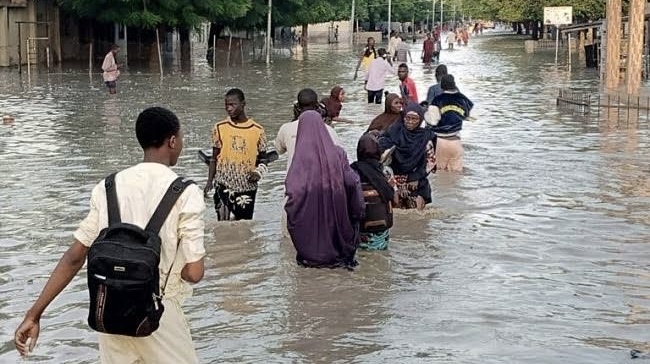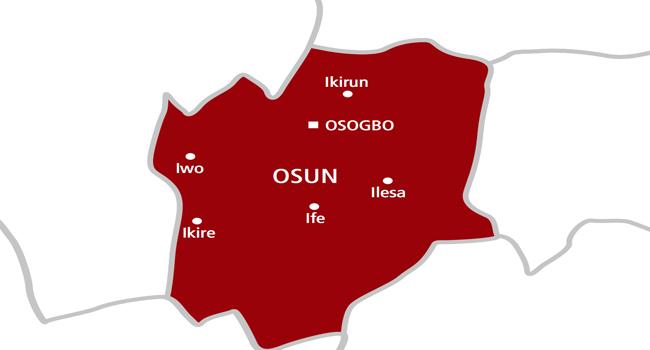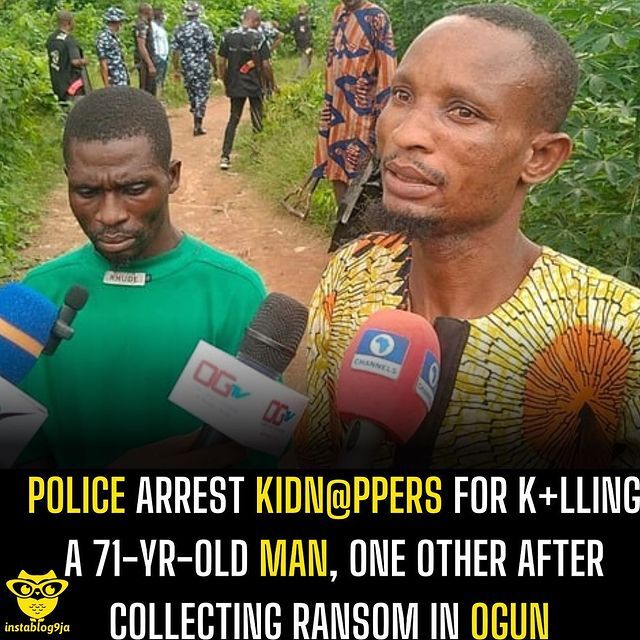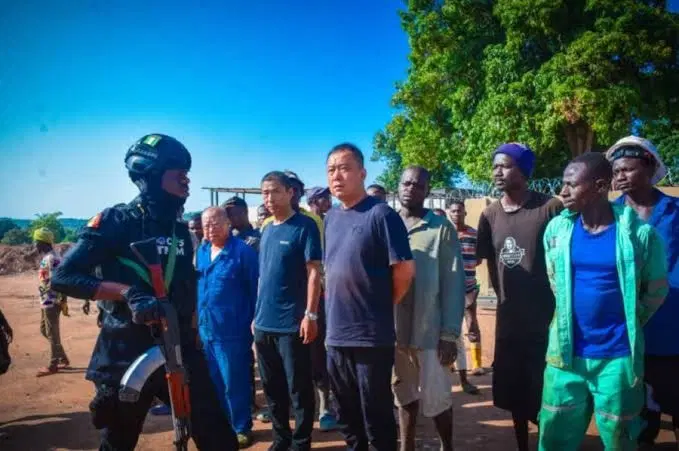The humanitarian coordinator in Nigeria, Mohammed Fall, has announced a $6 million allocation from the Nigeria Humanitarian Fund to assist flood victims in Borno.
The Alau Dam, situated just over 10 miles south of Maiduguri, Borno’s capital, collapsed on September 10, displacing hundreds of thousands of residents.
UN spokesperson Stephane Dujarric provided an update at a news conference in New York on Monday, stating that a joint mission consisting of UN agencies, NGOs, and the Nigeria Red Cross Society visited Maiduguri over the weekend. The mission met with individuals affected by the disaster, many of whom had already been displaced multiple times due to ongoing conflict and insecurity.
Dujarric reported: “We and our partners are providing them with hot meals, we are facilitating air drops of food in hard-to-reach areas cut off by flood waters, and we are also trucking in water. We are also providing water and sanitation hygiene services and water purification tablets to stem disease outbreaks. This is in addition to supplying hygiene and dignity kits to women and girls, as well as emergency health and shelter services.”
She added that the UN Office for the Coordination of Humanitarian Affairs (OCHA) is working with donors to secure additional funding.
The flooding has affected over 125,000 hectares of farmland across Nigeria, coinciding with a time when 32 million people are facing severe food insecurity.
Emmanuel Bigenimana, head of the World Food Programme (WFP) office in Maiduguri, reported that he conducted a rapid damage and needs assessment from a UN Humanitarian Air Service (UNHAS) helicopter.
He said: “What I have seen is really heartbreaking,” he said, describing homes, infrastructure, roads, schools, hospitals submerged by water. Many, many people – I’m talking about over 200,000 – 300,000 displaced people – are overcrowded in several IDP (Internally Displaced Persons) camps and also on the streets.”
WFP reported that the dam collapse led to river water flooding 50 percent of Maiduguri, prompting state authorities to issue evacuation orders and call for humanitarian aid. Bigenimana said that WFP has opened soup kitchens in three camps—Teachers’ Village, Asheikh, and Yerwa—to provide hot meals to 50,000 of the most affected individuals, but additional assistance is necessary.
“This is really an additional burden to already existing crises,” Bigenimana emphasized. “This region has been facing conflict for a decade.” He also highlighted recent issues of food inflation, which have severely impacted millions already facing food insecurity.
Extreme weather impacts are widespread across Nigeria, with approximately 800,000 people in 29 states affected by floods as of September 2024, and over 550,000 hectares of cropland inundated. By March, 32 million people in the country were experiencing acute hunger.
The UN’s food agency stated that $147.9 million is needed to support food-insecure populations in Nigeria’s northeast over the next six months.
For the flood-affected areas in Maiduguri, Bigenimana warned that “recovery will take long,” stressing the need for more resources to save lives and address both immediate and long-term recovery efforts.



